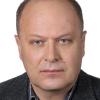
Sergey Aseev
Guest Research Scholar
Exploratory Modeling of Human-natural Systems Research Group
Advancing Systems Analysis Program
Contact
Biography
Sergey M. Aseev was a participant in the 1986 Young Scientists Summer Program. He returned to IIASA in January 2001 to join the Dynamic Systems Project. He is currently affiliated with the Exploratory Modeling of Human-Natural Systems (EM) Research Group in the IIASA Advancing Systems Analysis (ASA) Program. He works in the field of mathematical theory of optimal control. His current research focuses on optimal control problems arising in economics.Aseev graduated from the Faculty of Applied Mathematics and Cybernetics, Moscow State University in 1980. In 1983, he defended his PhD thesis and began his affiliation with the Steklov Mathematical Institute of the Russian Academy of Sciences. In 1998, he received his Doctorate in Physics and Mathematics from the Steklov Institute, and in 2008, he became a corresponding member of the Russian Academy of Sciences. He is currently a Chief Research Scholar at the Steklov Institute.
Last update: 22 DEC 2021
Publications
Aseev, S.M., Besov, K.O., & Kryazhimskiy, A.V. (2012). Infinite-horizon optimal control problems in economics. Russian Mathematical Surveys 67 (2) 195-253. 10.1070/RM2012v067n02ABEH004785.
Aseev, S.M. & Veliov, V.M. (2012). Maximum principle for infinite-horizon optimal control problems with dominating discount. Dynamics of Continuous, Discrete and Impulsive Systems, Series B (DCDIS-B) 19 (1) 43-63.
Aseev, S.M. & Veliov, V.M. (2012). Necessary optimality conditions for improper infinite-horizon control problems. In: Operations Research Proceedings 2011. Eds. Klatte, D, Luthi, HJ, & Schmedders, K, Berlin-Heidelberg: Springer. 10.1007/978-3-642-29210-1_4.
Aseev, S.M., Besov, K.O., & Kaniovski, S. (2010). Optimal Endogenous Growth with Exhaustible Resources. IIASA Interim Report. IIASA, Laxenburg, Austria: IR-10-011
Aseev, S.M., Besov, K.O., Ollus, S.-E., & Palokangas, T. (2010). Optimal economic growth with a random environmental shock. In: Dynamic Systems, Economic Growth, and the Environment. Eds. Cuaresma, J. Crespo, Palokangas, T., & Tarasyev, A., Heidelberg: Springer-Verlag. ISBN 978-3-642-02131-2 10.1007/978-3-642-02132-9_6.